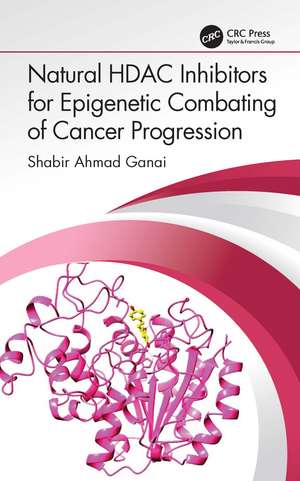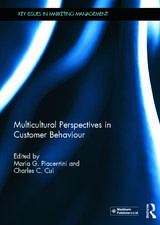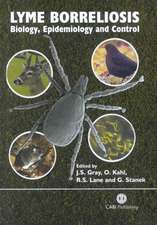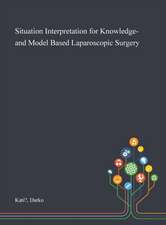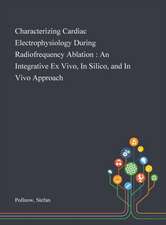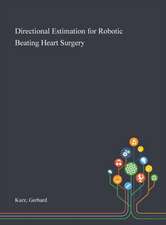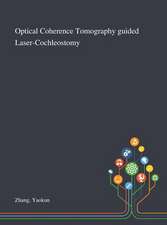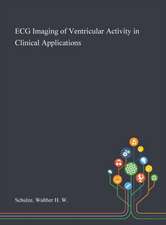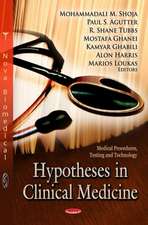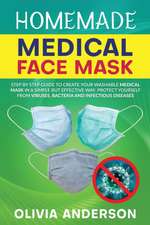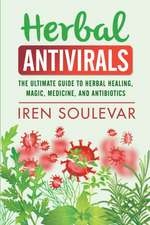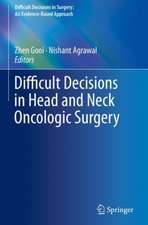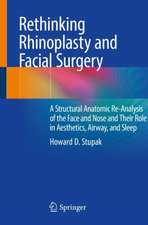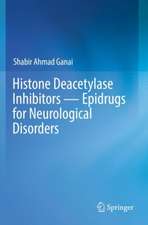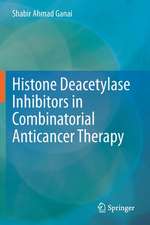Natural HDAC Inhibitors for Epigenetic Combating of Cancer Progression
Autor Shabir Ahmad Ganaien Limba Engleză Hardback – 21 mar 2023
The major features of this book encompass
- General compendium of HDAC inhibitors with deep emphasis on the toxicity issues of synthetic HDAC inhibitors
- Various groups of natural HDAC inhibitors, their representatives and premier sources
- Cyclic tetrapeptides of natural origin and their importance as cancer chemotherapeutic agents
- Hydroxamates and depsipeptides from natural sources and their promising role in cancer therapy
- Natural flavonoids, their HDAC inhibitory tendency and marvellous anticancer activity
- Non-flavonoid natural HDAC inhibitors and their pleasing cytotoxic effects towards cancer models
- Combined therapy involving natural flavonoids with other anticancer molecules for synergistic and additive benefits against cancer models
- Non-flavonoid HDAC inhibitors and conventional drugs in collaborative mode against aggressive malignancies
- Nanotechnology-based delivery of natural HDAC inhibitors for greater therapeutic efficacy over traditional combinatorial therapy
Preț: 639.71 lei
Preț vechi: 702.98 lei
-9% Nou
Puncte Express: 960
Preț estimativ în valută:
122.42€ • 127.34$ • 101.07£
122.42€ • 127.34$ • 101.07£
Carte disponibilă
Livrare economică 22 martie-05 aprilie
Livrare express 08-14 martie pentru 29.36 lei
Preluare comenzi: 021 569.72.76
Specificații
ISBN-13: 9781032279862
ISBN-10: 1032279869
Pagini: 170
Ilustrații: 11 Line drawings, color; 11 Illustrations, color
Dimensiuni: 156 x 234 x 15 mm
Greutate: 0.42 kg
Ediția:1
Editura: CRC Press
Colecția CRC Press
ISBN-10: 1032279869
Pagini: 170
Ilustrații: 11 Line drawings, color; 11 Illustrations, color
Dimensiuni: 156 x 234 x 15 mm
Greutate: 0.42 kg
Ediția:1
Editura: CRC Press
Colecția CRC Press
Public țintă
Postgraduate and ProfessionalCuprins
1. Abridgement of Classical Histone Deacetylases, Their Inhibitors and Jeopardy of Synthetic Histone Deacetylase Inhibitors
2.1 Thorough Classification of Natural HDAC Inhibitors
2.2 Sources of Natural HDAC Inhibitors
2.2.1 Source of Cyclic tetrapeptide HDACi
2.2.2 Natural Hydroxamate HDACi source
2.2.3 Origin of Depsipeptide HDACi
2.2.4 Flavonoid HDACi and Their Natural Sources
2.2.5 Important sources of isothiocyanate group of HDACi
2.2.6 Main Sources of Organosulfur HDACi
2.2.7 Original Sources of Short Chain Fatty acid HDACi
2.2.8. Stilbenes and Their premier sources
2.2.9 Core sources of polyketide
2.2.10 Best sources of HDACi belonging to Bromo-tyrosine derivatives
2.2.11 Natural Origin of Coumarin Derivatives, Prenylated Isoflavones and other HDACi
3. Natural Cyclic Tetrapeptide Histone Deacetylase Inhibitors and Their Optimistic Role in Anticancer Therapy
3.1 Anticancer effect of Chlamydocin
3.2 Promising anticancer property of Apicidin
4. Anticancer Potential of Natural Hydroxamates and Depsipeptides Against Different Disease Models
4.1 Hydroxamate HDACi and their antineoplastic effect
4.2 Anticancer Property of Natural Depsipeptide HDACi
5. Promising Therapeutic Benefits of Flavonoid Histone Deacetylase Inhibitors with Special Emphasis on Modulation of Central Molecular Mechanisms
5.1 Short Introduction to Plant Derived HDAC Inhibitors
5.2 Classification of Phenolic Compounds and Flavonoids
5.3 Extensive Compendium of Flavonoid HDAC Inhibitors
5.4 Antineoplastic Effect of Isoflavonoid HDAC Inhibitors
5.5 Flavanones in obstructing cancer progression
5.6. Antineoplastic property of flavonols
5.6.1 Anticancer potential of Quercetin
5.6.2 Antineoplastic activity of Kaempferol
5.6.3 Antineoplastic characteristics of flavonol Isorhamnetin
5.6.4 Myricetin and fisetin as anticancer flavonols
5.7 Anti-tumour activity of Flavones
5.7.1 Apigenin based anticancer therapy
5.7.2 Chrysin as propitious molecule for belligerent cancers
5.7.3 Sanguine antineoplastic effects of Luteolin
5.7.4 Rutin as anticancer flavone
5.8 Flavanols and their role in cancer therapy
5.9 Anticancer characteristics of chalcones
5.9.1 Ovalitenin A and its role in hampering cancer
5.9.2 Licochalcone A as anticancer chalcone
5.9.3 Panduratin A and its anticancer benefits
5.9.4 Cardamonin as promising antineoplastic natural chalcone
5.9.5 Lonchocarpin and glimpse of its anti-tumour potential
5.10. Anthocyanins as anticancer flavonoids
6. Non-Flavonoid Histone Deacetylase Inhibitors from Natural Sources and Their Stupendous Anticancer Properties
6.1 Promising anticancer effect of isothiocyanates
6.2 Prodigious cytotoxic effect of bromotyrosine HDAC inhibitors
6.3 Cytotoxic effects of organosulfur compounds
6.4 Anticancer characteristics of natural short chain fatty acids
6.5 Antiproliferative effects of stilbenes
6.5.1 Resveratrol as antiproliferative stilbene
6.5.2 Piceatannol in abrogating cancer advancement
6.6 Coumarins in anticancer therapy
7. Flavonoid Inhibitors of Histone Deacetylases in Concert with Conventional Chemotherapeutic Agents for Phenomenal Therapy Against Cancer
7.1 Flavones in association with standard agents
7.1.1 Chrysin in cooperation with standard chemotherapeutics
7.1.2 Luteolin-conventional drugs combination
7.1.3 Apigenin in collaboration with standard cancer therapeutics
7.1.4 Rutin in combinatorial therapy
7.2 Isoflavones and conventional drugs combination
7.2.1 Standard drugs in combination with genistein
7.2.2 Conventional drugs and daidzein association
7.3 Flavanones in doublet therapy with conventional therapeutic molecules
7.3.1 Naringenin augments anticancer effect of usual anticancer drugs
7.3.2 Naringin reinforces effect of conventional antineoplastic agents
7.3.3 Hesperidin and hesperetin in concert with customary therapeutics
7.4 Flavonols in combinational therapy
7.4.1. Isorhamnetin as co-therapheutic with endorsed therapeutics
7.4.2 Quercetin and standard chemotherapeutics in concert
7.4.3 Combining conventional drug molecules with kaempferol
7.4.4 Fisetin-conventional drug combination
7.4.5 Standard drug molecules along with myricetin
7.5 Flavanols in cooperation with standard cancer therapeutics
7.6 Combining conventional compounds with anthocyanins
8. Standard Drugs in Cooperation with Natural Non-Flavonoid Histone Deacetylase Inhibitors for Stunning Therapy Against Belligerent Malignancies
8.1 Combinatorial therapeutic approach involving organosulfurs
8.2 Stilbenes as adjuvant therapeutics with conventional antineoplastic agents
8.2.1 Resveratrol-conventional drug combination
8.2.2 Piceatannol together with certain conventional drugs
8.3 Conventional drugs in union with short chain fatty acids
8.4 Coumarins as adjuvants for standard antineoplastic agents
9. Enhancing Bioactivity and Bioavailability of Natural Histone Deacetylase Inhibitors Through Innovative Nanotechnological Approach
9.1 Nanoparticles containing single natural HDAC inhibitor
9.1.1 Nanoparticles loaded with Quercetin
9.1.2 Luteolin loaded nanovectors in cancer monotherapy
9.1.3 Resveratrol nanoparticles in singlet cancer therapy
9.1.4 Nanoparticles loaded with Chrysin for cancer treatment
9.1. 5 Nano-apigenin in cancer therapy
9.1.6 Anticancer monotherapy with rutin-nanoparticles
9.1.7 Piceatannol nanoparticles in singlet cancer therapy
9.1.8 Nano-encapsulated sulforaphane for therapy against cancer
9.2 Nanocombinatorial anticancer therapy with herbal HDACi
9.2.1. Quercetin in nano-combinational therapy
9.2.2 Luteolin-other molecules dual encapsulation
9.2.3 Resveratrol and standard drug co-encapsulation
9.3 Shortcomings of nanoparticles integrated with HDAC inhibitors
- Glimpse of HATs and HDACs
- Family of Classical HDACs
- Concise explanation of HDACi and their diverse groups
- Disquietude of synthetic HDACi
2.1 Thorough Classification of Natural HDAC Inhibitors
2.2 Sources of Natural HDAC Inhibitors
2.2.1 Source of Cyclic tetrapeptide HDACi
2.2.2 Natural Hydroxamate HDACi source
2.2.3 Origin of Depsipeptide HDACi
2.2.4 Flavonoid HDACi and Their Natural Sources
2.2.5 Important sources of isothiocyanate group of HDACi
2.2.6 Main Sources of Organosulfur HDACi
2.2.7 Original Sources of Short Chain Fatty acid HDACi
2.2.8. Stilbenes and Their premier sources
2.2.9 Core sources of polyketide
2.2.10 Best sources of HDACi belonging to Bromo-tyrosine derivatives
2.2.11 Natural Origin of Coumarin Derivatives, Prenylated Isoflavones and other HDACi
3. Natural Cyclic Tetrapeptide Histone Deacetylase Inhibitors and Their Optimistic Role in Anticancer Therapy
3.1 Anticancer effect of Chlamydocin
3.2 Promising anticancer property of Apicidin
4. Anticancer Potential of Natural Hydroxamates and Depsipeptides Against Different Disease Models
4.1 Hydroxamate HDACi and their antineoplastic effect
4.2 Anticancer Property of Natural Depsipeptide HDACi
5. Promising Therapeutic Benefits of Flavonoid Histone Deacetylase Inhibitors with Special Emphasis on Modulation of Central Molecular Mechanisms
5.1 Short Introduction to Plant Derived HDAC Inhibitors
5.2 Classification of Phenolic Compounds and Flavonoids
5.3 Extensive Compendium of Flavonoid HDAC Inhibitors
5.4 Antineoplastic Effect of Isoflavonoid HDAC Inhibitors
5.5 Flavanones in obstructing cancer progression
5.6. Antineoplastic property of flavonols
5.6.1 Anticancer potential of Quercetin
5.6.2 Antineoplastic activity of Kaempferol
5.6.3 Antineoplastic characteristics of flavonol Isorhamnetin
5.6.4 Myricetin and fisetin as anticancer flavonols
5.7 Anti-tumour activity of Flavones
5.7.1 Apigenin based anticancer therapy
5.7.2 Chrysin as propitious molecule for belligerent cancers
5.7.3 Sanguine antineoplastic effects of Luteolin
5.7.4 Rutin as anticancer flavone
5.8 Flavanols and their role in cancer therapy
5.9 Anticancer characteristics of chalcones
5.9.1 Ovalitenin A and its role in hampering cancer
5.9.2 Licochalcone A as anticancer chalcone
5.9.3 Panduratin A and its anticancer benefits
5.9.4 Cardamonin as promising antineoplastic natural chalcone
5.9.5 Lonchocarpin and glimpse of its anti-tumour potential
5.10. Anthocyanins as anticancer flavonoids
6. Non-Flavonoid Histone Deacetylase Inhibitors from Natural Sources and Their Stupendous Anticancer Properties
6.1 Promising anticancer effect of isothiocyanates
6.2 Prodigious cytotoxic effect of bromotyrosine HDAC inhibitors
6.3 Cytotoxic effects of organosulfur compounds
6.4 Anticancer characteristics of natural short chain fatty acids
6.5 Antiproliferative effects of stilbenes
6.5.1 Resveratrol as antiproliferative stilbene
6.5.2 Piceatannol in abrogating cancer advancement
6.6 Coumarins in anticancer therapy
7. Flavonoid Inhibitors of Histone Deacetylases in Concert with Conventional Chemotherapeutic Agents for Phenomenal Therapy Against Cancer
7.1 Flavones in association with standard agents
7.1.1 Chrysin in cooperation with standard chemotherapeutics
7.1.2 Luteolin-conventional drugs combination
7.1.3 Apigenin in collaboration with standard cancer therapeutics
7.1.4 Rutin in combinatorial therapy
7.2 Isoflavones and conventional drugs combination
7.2.1 Standard drugs in combination with genistein
7.2.2 Conventional drugs and daidzein association
7.3 Flavanones in doublet therapy with conventional therapeutic molecules
7.3.1 Naringenin augments anticancer effect of usual anticancer drugs
7.3.2 Naringin reinforces effect of conventional antineoplastic agents
7.3.3 Hesperidin and hesperetin in concert with customary therapeutics
7.4 Flavonols in combinational therapy
7.4.1. Isorhamnetin as co-therapheutic with endorsed therapeutics
7.4.2 Quercetin and standard chemotherapeutics in concert
7.4.3 Combining conventional drug molecules with kaempferol
7.4.4 Fisetin-conventional drug combination
7.4.5 Standard drug molecules along with myricetin
7.5 Flavanols in cooperation with standard cancer therapeutics
7.6 Combining conventional compounds with anthocyanins
8. Standard Drugs in Cooperation with Natural Non-Flavonoid Histone Deacetylase Inhibitors for Stunning Therapy Against Belligerent Malignancies
8.1 Combinatorial therapeutic approach involving organosulfurs
8.2 Stilbenes as adjuvant therapeutics with conventional antineoplastic agents
8.2.1 Resveratrol-conventional drug combination
8.2.2 Piceatannol together with certain conventional drugs
8.3 Conventional drugs in union with short chain fatty acids
8.4 Coumarins as adjuvants for standard antineoplastic agents
9. Enhancing Bioactivity and Bioavailability of Natural Histone Deacetylase Inhibitors Through Innovative Nanotechnological Approach
9.1 Nanoparticles containing single natural HDAC inhibitor
9.1.1 Nanoparticles loaded with Quercetin
9.1.2 Luteolin loaded nanovectors in cancer monotherapy
9.1.3 Resveratrol nanoparticles in singlet cancer therapy
9.1.4 Nanoparticles loaded with Chrysin for cancer treatment
9.1. 5 Nano-apigenin in cancer therapy
9.1.6 Anticancer monotherapy with rutin-nanoparticles
9.1.7 Piceatannol nanoparticles in singlet cancer therapy
9.1.8 Nano-encapsulated sulforaphane for therapy against cancer
9.2 Nanocombinatorial anticancer therapy with herbal HDACi
9.2.1. Quercetin in nano-combinational therapy
9.2.2 Luteolin-other molecules dual encapsulation
9.2.3 Resveratrol and standard drug co-encapsulation
9.3 Shortcomings of nanoparticles integrated with HDAC inhibitors
Notă biografică
Dr. Shabir Ahmad Ganai has completed his Masters in Biochemistry from Bangalore University. Following this he did his Ph.D in Biochemistry from Tamil Nadu. During his doctorate Dr. Ganai remained AYUSH-JRF. Further Dr. Ganai worked as Research Associate in National Brain Research Centre Haryana. Afterwards Dr. Ganai got a big grant from Science and Engineering Research Board and Served as Principal Investigator (Young Scientist in the UoK. Dr. Ganai currently serves the FoA of SKUAST-Kashmir. Dr. Ganai has cleared National Eligibility Test (NET) exam, Jammu and Kashmir State Eligibility Test (JK-SET), GATE Life Sciences Two times (GATE XL 2020 and GATE XL-2022). Dr. Ganai has received two Best Oral Presentation Awards for Presenting his Research Work in Various Conferences.
Dr. Shabir Ahmad Ganai has Published 29 International Articles in highly Reputed SCIE Journals, two International Books in Biomedical Sciences in Springer-Nature and one National Level Book on Structural Biochemistry (Drug Designing). The current cumulative Impact Factor of articles Published by Dr. Ganai is 151. Dr. Ganai as of now has 682 citations, h-index of 16 and i10-index of 22. Dr. Ganai serves as a referee for multiple International Journals of high repute. Dr. Ganai has received certificate of appreciation from American Chemical Society. Dr. Ganai is Member of American Chemical Society and Epigenetics Society. Most notably, Dr. Shabir Ahmad Ganai figured in the list of Top 2% Scientists of the World, the Ranking being done by Stanford University USA experts and Elsevier BV.
Dr. Shabir Ahmad Ganai has Published 29 International Articles in highly Reputed SCIE Journals, two International Books in Biomedical Sciences in Springer-Nature and one National Level Book on Structural Biochemistry (Drug Designing). The current cumulative Impact Factor of articles Published by Dr. Ganai is 151. Dr. Ganai as of now has 682 citations, h-index of 16 and i10-index of 22. Dr. Ganai serves as a referee for multiple International Journals of high repute. Dr. Ganai has received certificate of appreciation from American Chemical Society. Dr. Ganai is Member of American Chemical Society and Epigenetics Society. Most notably, Dr. Shabir Ahmad Ganai figured in the list of Top 2% Scientists of the World, the Ranking being done by Stanford University USA experts and Elsevier BV.
Descriere
This Book entitled "Natural HDAC Inhibitors for Epigenetic Combating of Cancer Progression" deals only with HDAC inhibitors from natural origin including bacteria, fungi, marine organisms and notably from diverse plant sources.
